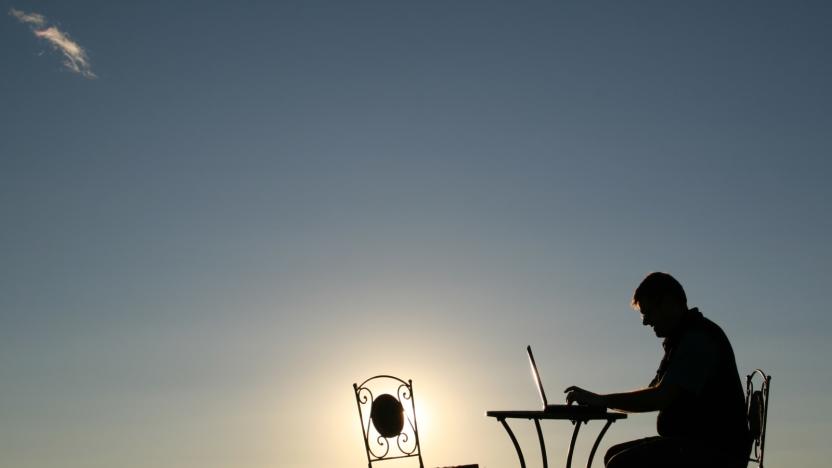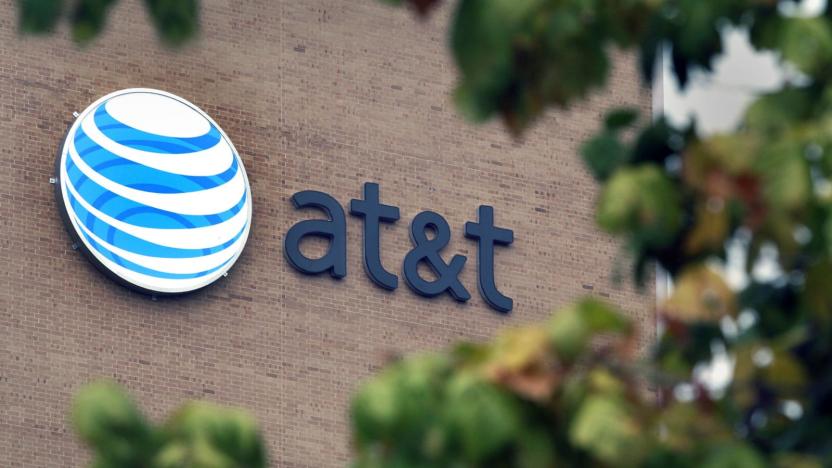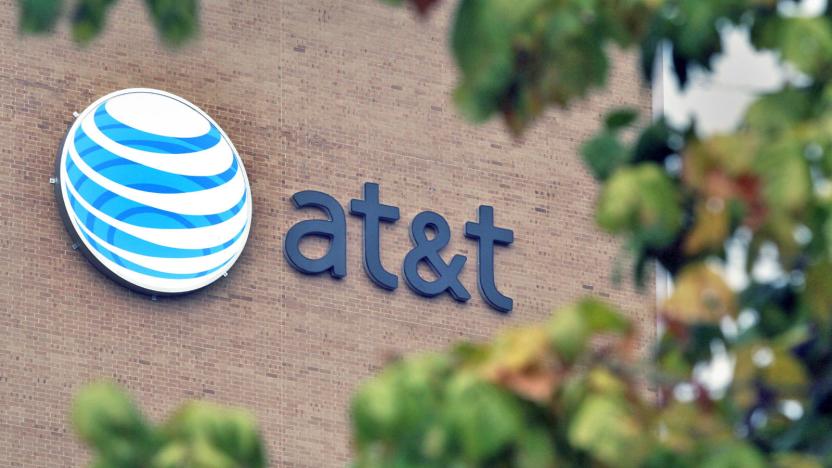RuralBroadband
Latest

Microsoft wants to close the rural broadband gap by 2022
It's well known that the US has a pretty extreme broadband internet access gap. Around 34 million Americans don't have it, including 39 percent of rural citizens and today, Microsoft's president Brad Smith announced his company plan to close that gap, mostly using TV White Spaces spectrum.

AT&T is rapidly expanding its rural wireless internet service
AT&T wasn't kidding when it said it would expand its rural wireless internet service in short order. The carrier has launched its fixed-in-place cellular access in eight more southeastern states, providing broadband to over 70,000 locations that would otherwise have poor or non-existent internet coverage. That still doesn't sound like much, but it's much larger than the Georgia-only service AT&T started with in April. It also gets the provider much closer to its goal of serving over 400,000 locations by the end of 2017.

AT&T's rural wireless internet push starts with Georgia
AT&T is making good on an FCC Connect America Fund promise to bring reasonably fast internet to rural dwellers and those who'd otherwise have to settle for pokey service. The carrier has completed its first batch of fixed wireless internet rollouts in Georgia, sending LTE cellular data to the home through a static antenna system. AT&T's version offers speeds of "at least" 10Mbps downstream and 1Mbps upstream. That's not the 25Mbps/3Mbps that the FCC currently defines as broadband, but it's enough to use many modern services -- and unlike satellite internet, it's not prone to high latency or interference from the weather. As you might guess from the cell connection, though, you won't have unlimited access.

A farmer built his own 4G mast to fix rural broadband issues
Living in rural England, Richard Guy was a man with a problem. Like many located in similar areas, his "broadband" internet connection was pretty narrow, with download speeds below 1Mbps. While some isolated communities are grouping together to build their own municipal networks, Guy had another solution: mobile data. He created his own 4G mast and wired it up with fiber optic cables, and now enjoys 45Mbps+ connection speeds. Guy, a farmer by trade, has since set up a business called Agri-Broadband to help other rural businesses get connected.

22 Massachusetts towns will build their own gigabit internet service
The FCC made it clear that towns should have the freedom to build their own broadband services, and one cooperative group is determined to take advantage of that liberty. WiredWest has gained the support of 22 Massachusetts towns for a municipal broadband effort that will give them all fiber optic service. It won't be the cheapest option, but it'll be much faster than the pokey DSL, fixed wireless and satellite data that residents have had to settle for in the past. It'll start at $49 per month for 25Mbps speeds and no caps, with 100Mbps and a lightning-quick 1Gbps respectively available for $79 and $109 per month.

New York governor wants statewide 100Mbps internet by 2019
With a $1 billion plan, New York Governor Andrew Cuomo hopes to have every New Yorker hooked up to high-speed internet by 2019. The administration is billing it as the largest state investment in universal broadband in the country. Just how fast are we talking, here? In most cases, the program calls for providers to offer at least 100 Mbps, or as Chief Digital Officer Rachel Haot described it at a press conference, "more than 10 times the federal definition of 'broadband.'"

The FCC will vote on net neutrality on February 26th
The FCC may be about to redefine American internet access in a big, big way. Chairman Tom Wheeler has narrowed down the Commission's vote on new net neutrality rules to its next meeting, on February 26th. It's still not apparent exactly what those proposed regulations will be, although they're likely to bridge the gap between the President's desire to treat the internet as a utility and the anti-regulatory approach of internet providers. There's a common ground between the FCC and the President, Wheeler says -- they both want to prevent networks from blocking or throttling apps, and they both value transparency.

FCC gets approval for plan to subsidize fast rural internet access
At long last, the FCC can move forward with reforming its rural connection subsidies for the broadband era. A federal appeals court has upheld the agency's Connect America Fund after challenges from smaller carriers, which were worried that the shift from subsidizing phone calls to fast internet access would hurt their bottom line. Their arguments were either "unpersuasive" or were blocked from legal consideration in the first place, the court says.

Connecting Cape Town: Inside South Africa's TV white spaces experiment
In 2011, a United Nations commission came to a powerful conclusion: access to broadband internet is a basic human right, matched by the likes of housing, sustenance and healthcare. Arguments can be made that widespread access has transformed entire economies while kick-starting others, with Finland even going so far as to command its ISPs to provide 1 Mbps connections to all homes regardless of location. Both the United States and the United Kingdom have similarly ambitious plans, and all three of these countries have one particular catalyst in common: funds. The harsh reality, however, is the economies that stand to gain the most from sweeping internet adoption are also the least equipped to enable it. In early 2010, the European Bank estimated that a project to roll out passive optical fiber to 33 cities in the Netherlands would cost nearly €290 million. The mission driving such funding? "To stimulate innovation and keep Europe at the forefront of internet usage." It's the answer to a problem that could undoubtedly be categorized as "first world," but consider this: Internet World Stats found that 92.9 percent of The Netherlands' population routinely used the world wide web in 2012. Let's just say it's easier to invest in an initiative that you're certain nearly 9 in 10 citizens will use. In the whole of Africa, just 15.6 percent of residents are connected to the internet, which is under half of the world average. It's also home to vast, inhospitable landscapes that are economically inviable to crisscross with fiber. All of that being said, nearly a sixth of the globe's population resides on the continent, representing a monumental opportunity for something -- anything -- to connect the next billion people. As it turns out, there are actions presently ongoing to make a significant mark in the course of history. Google, Microsoft, Carlson Wireless, Tertiary Education and Research Network of South Africa (TENET) and a host of other powerful entities are collaborating to bring high-speed internet to an underserved continent via TV white spaces -- a low-cost, highly adaptable technology that's poised to explode. For now, Cape Town, South Africa, is acting as a proving ground for what will eventually be a far larger experiment. The core goal is actually quite simple: to beam hope to a disconnected society, with unused bands between TV channels acting as the medium.

FCC loosens outdoor power restrictions on 60GHz spectrum
In response to industry petitioners, the FCC is easing outdoor power restrictions on the unlicensed 60GHz spectrum, which could bring faster broadband to rural areas and cost-effective backhaul solutions in urban settings. This ruling change would permit outdoor devices to deliver high-speed data over greater distances -- around a mile at 7 Gbps, all told -- and "enhance" the unlicensed utility of the 57-64GHz spectrum. While this is the same frequency WiGig uses, indoor power restrictions haven't changed any. Because this spectrum is unlicensed, it means that basically anyone can use it as long as they follow the FCC's rules; no funny business, please. [Image credit: Rennett Stowe / Flickr]

UK watchdog warns of rural broadband delay, blames BT monopoly
Despite receiving hundreds of millions of pounds in government subsidies, the effort to bring high-speed internet to rural parts of the UK seems to be running seriously behind schedule. The National Audit Office (NAO) says the original goal of providing 90 percent of Brits with access to at least a 25Mbps connection by May 2015 will likely be pushed back to the end of 2016 -- and at a cost that's £207 million ($312 million) more than first anticipated. A big part of the problem, according to the NAO, is a lack of competition among those bidding to help with the project. BT has already been awarded more than half of the local contracts and no other company is in the running to scoop up what's left. As well as slowing things down, this effective monopoly may also be adding to the financial pain; whereas before the government expected BT to foot 36 percent of the bill, that's now dropped to just 23 percent. Microsoft's whitespace idea could avoid all these issues, but in terms of schedules it seems just as remote.

FCC approves Google's white space wireless database
Google may have been on pins and needles while the FCC scrutinized its white space wireless database over the spring, but it can relax this summer -- the FCC has given the database the all-clear. The approval lets Google serve as one of ten go-to sources for white space devices needing safe frequencies in the US. It also lets those with interference-prone devices, such as wireless microphone users, register the airwaves they consider off-limits to white space technology. The clearance won't have much immediate effect when very few Americans are using the spectrum, but it's a step forward for rural broadband rollouts and other situations where long-range, unlicensed wireless comes in handy.

Dish and nTelos start testing fixed LTE broadband in rural Virginia (video)
The test run supplies 2.5GHz wireless internet access to a handful of homes near Afton and Waynesboro, with speeds hovering at a respectable 20Mbps to 50Mbps.

TV white spaces forum paves the way for wireless broadband across Africa
I've traveled to remote islands in the South Pacific where wireless internet is proving to be the go-to technology for broadband, and increasingly, it's looking as if tether-less connections will be what brings millions upon millions of Africans online. Google's own Eric Schmidt has confessed as recently as March that the most exciting part of the web's future isn't any one technology or product, but the "next five billion people looking to get connected." So, it figures that Google was a major constituent at the recent TV White Spaces & Dynamic Spectrum Africa Forum in Dakar, Senegal. It -- along with 15 African nations, Microsoft, the Association for Progressive Communications, Afrinic and others -- recently convened in order to discuss the opportunities that are currently facing the continent. Indeed, the fact that there is over 90MHz available in Dakar alone to be used for wireless broadband deployment puts Africa in a unique spot -- one of the most disconnected regions of our planet could become a pioneer in bringing the next wave of humans online. ICASA, the South African regulator, will reportedly use various trial outcomes to evaluate possible rules for use of the TV white spaces. And, as Steve Song of Village Telco points out, it's pretty astounding to have Microsoft and Google working in some fashion towards a similar goal. As it stands, a lot has to happen -- final standards have to be agreed upon, equipment makers have to decide that it's a profitable enterprise, and individual nations have to place a high priority on getting their populations connected. That said, the amount of momentum that's already happening is supremely compelling, and I'm hoping to report back in the coming months on how a smattering of these very trials are impacting communities across Africa right now. Stay tuned!

UK regulator wants white space wireless service in 2014, starts trials this fall
While there have been white space test runs in the UK, these were private trials that weren't going to get the ball rolling without government help. Thankfully, local regulator Ofcom is of a like mind. It now plans a trial for data on the in-between frequencies this fall, with full-fledged service going live as soon as 2014. The agency expects to settle on the final locations for the pilot after it chooses partners. No, Ofcom can't guarantee that all the stars will align for rural broadband or other long-range wireless projects -- but its involvement at least means those stars are within reach.

Broadband internet arrives in California's Gold Country through white spaces deployment
While select outfits race to make satellite broadband an acceptable solution for those who need ping times south of three digits, there's another game in town looking to quietly revolutionize rural access. As LTE slowly rolls out to major metropolitan areas in the United States, vacated spectrum is allowing companies like Carlson Wireless to offer up another option. TV white spaces -- unused TV channels freed up after the analog-to-digital transition of 2009 -- have long since been eyed as the answer for distributing high-speed internet to areas that aren't economical to reach via wireline, or are otherwise shunned by conventional wireless operators. Armed with an FCC-granted Special Temporary Authority to validate the efficacy of the product in real-world scenarios, Carlson has partnered with Cal.net in order to bring internet to sections of California's Gold Country; the project comprises multiple transmission sites delivering broadband to several hundred heretofore un-serviceable subscribers in El Dorado County. There's no word on pricing, but we're sure hoping it's a runaway hit -- we can think of plenty of gorgeous locales in this country that could stand a pinch of internet. (Yellowstone National Park, we're looking at you.)

European Commission clears Broadband Delivery UK initiative
Britain has had grand visions of supplying broadband to virtually every home through its Broadband Delivery UK (BDUK) initiative, but the lack of EU approval has put a large part of that plan on ice. Consider the European Commission's latest move a thaw, then. It just confirmed that BDUK is legal within EU rules on state aid through the measures to keep it honest, such as top-level advice to regional planners and Ofcom control over the costs and terms of any given rollout. The clearance lets a raft of projects get underway, and should ideally supply services like BT Infinity to 90 percent of the UK as well as a minimum 2Mbps for the rest; given that many BDUK providers have had to wait until now to get started, though, we wouldn't anticipate fast internet access in the boonies just yet.

Hughes updates its HughesNet satellite broadband with Gen4 service
On the same day that Dish's new satellite broadband service kicks off, partner Hughes is upgrading its own offering with even faster speeds. HughesNet Gen4 offers downloads of up to 15 Mbps to the 19 million (or so) Americans who can't get high-speed fixed-line broadband services. $50 a month will get customers 10 Mbps download and 1 Mbps upload with a 20GB data cap, while $80 a month offers a 30GB limit and 2 Mbps upload -- but for high-rolling hermits, $100 a month gets you the full 15 Mbps down, 2 Mbps up and a 40GB allowance. Current users wanting in on the action aren't excluded from the program, and can register their interest at our More Coverage link.

Dish Network launches nationwide satellite broadband service with ViaSat, Hughes, calls it dishNET
Dish Network's long-gestating tie-up with ViaSat and Hughes has finally arrived under the name dishNET. Sounding like an implement you'd use to clean dirty dinner plates, the nationwide satellite broadband service launches from October 1st, targeting customers in rural areas that are underserved with fixed line gear. $40 a month gets you 5 Mbps down / 1Mbps up with a 10GB data cap, while subscribers can get a $10 discount if they pick up a TV package at the same time. We asked the company if this was related to the service based upon its spectrum purchases that was hinted at back in August, and it confirmed this is just leveraging ViaSat Exede and HughesNet.

FCC report says 19 million Americans still without broadband access
The FCC believes that 19 million Americans don't have access to broadband, defined as internet access at a speed of 4 megabits per second or more. Understandably, rural areas are the worst hit, with 14.5 million out in the sticks without access, with areas like West Virginia lacking coverage for 45.9 percent of its population. It's not limited to the wide open spaces of states like Montana (16.7 percent) however, even tech-heavy states like California lack access for 35 percent of its denizens. The commission's Connect America fund is charged with closing this gap, and has already awarded CenturyLink $35 million to connect 45,000 homes in under-served areas as part of a plan to help seven million more people get online by 2018.







